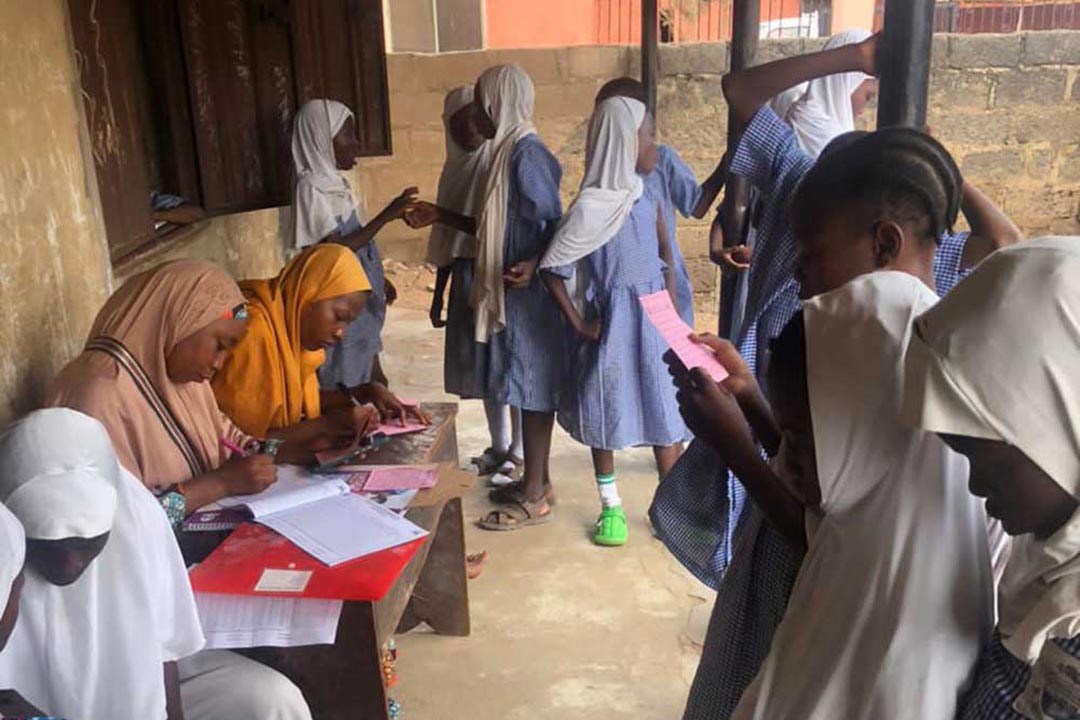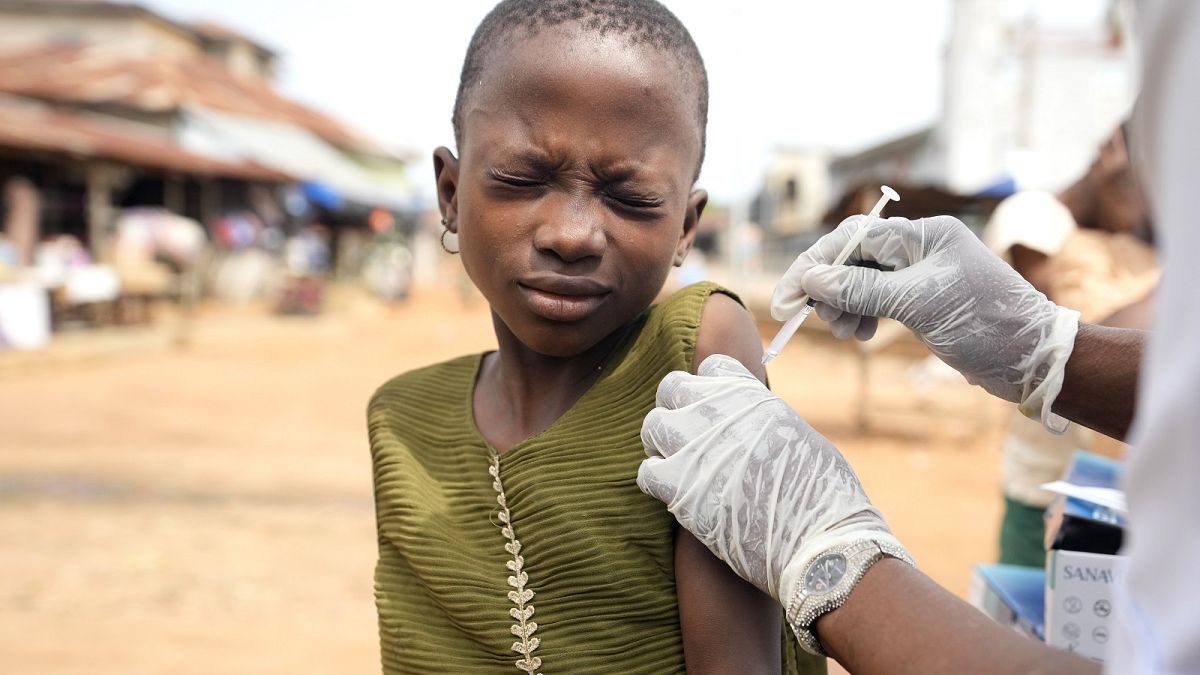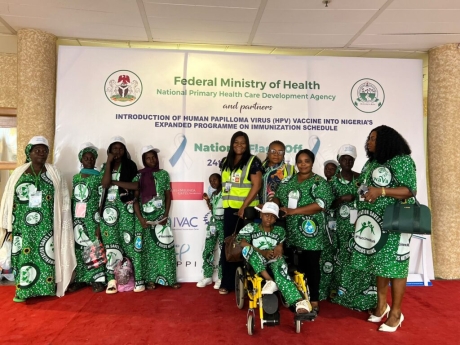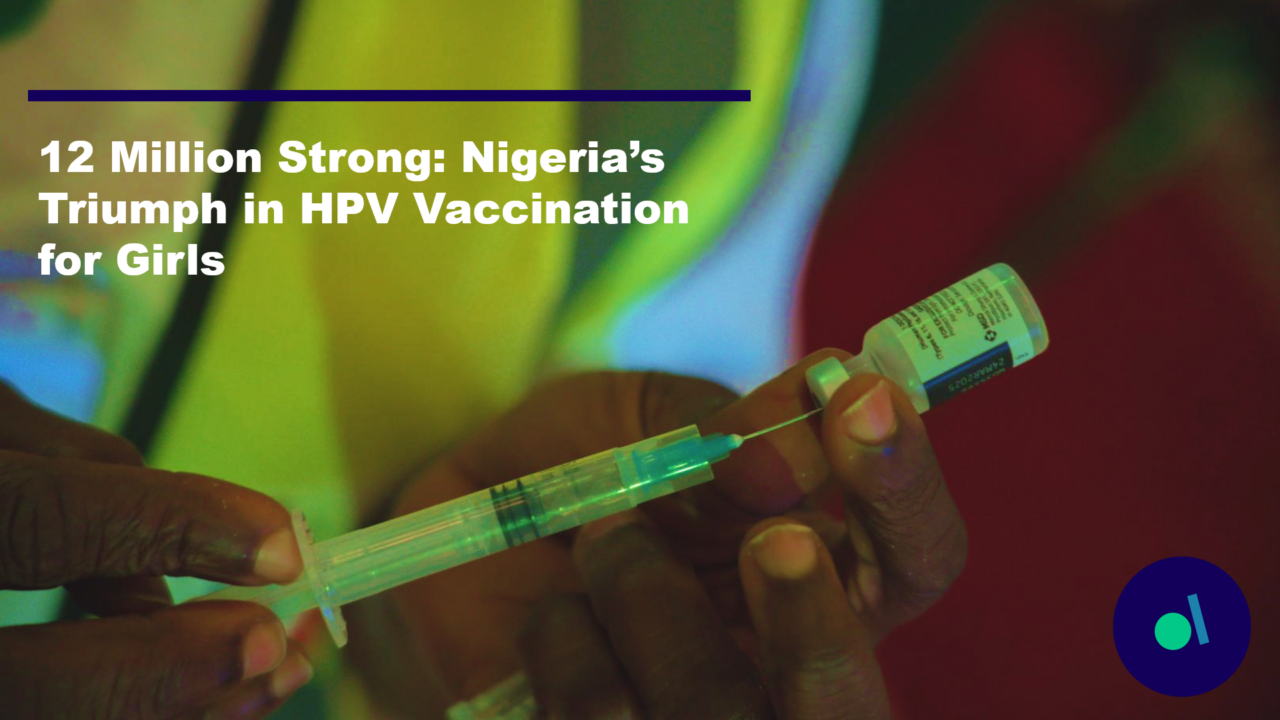In a monumental public health achievement, Nigeria has successfully vaccinated 12 million girls against the Human Papillomavirus (HPV), a leading cause of cervical cancer. This large-scale vaccination effort is part of a nationwide initiative to combat the virus, particularly among young girls before they become sexually active.
The HPV vaccine is a powerful tool capable of preventing over 90% of cervical cancer cases, which is the second deadliest cancer among Nigerian women aged 15 to 44.
In 2022, the country recorded around 13,700 new cases and 7,000 deaths. To combat this, the National Primary Health Care Development Agency initiated a free rollout of 7.7 million doses for girls in October 2023. This is the first phase of a larger campaign aiming to protect 16 million girls by 2025, with support from Gavi, UNICEF, WHO, and other partners.
Phase I was conducted in schools and communities across 16 states and Abuja, with Phase II starting in May, targeting states including Kwara.
 Students waiting to take HPV vaccine. Credit, Afeez Bolaji
Students waiting to take HPV vaccine. Credit, Afeez Bolaji
“The loss of about 8000 Nigerian women yearly from a disease that is preventable is completely unacceptable,” says Muhammad Ali Pate, the Coordinating Minister of Health and Social Welfare.
“Cervical cancer is mostly caused by Human Papilloma Virus (HPV), and parents can avoid physical and financial pain by protecting their children with a single dose of the vaccine. Saving lives, and producing quality health outcomes and protecting the wellbeing of Nigerians are central to the Renewed Health Agenda of President Bola Ahmed Tinubu.
The onset of the vaccination campaign is an opportunity to safeguard our girls from the scourge of cervical cancers many years into the future. As a parent myself, I have four daughters, all of them have had the same HPV vaccine to protect them against cervical cancer.
I’d like to implore fellow parents to dutifully ensure that this generation of our girls disrupt the preventable loss of lives to cervical cancer in addition to other untold hardship, loss, and pain.”
 Photo from euronews.com
Photo from euronews.com
Zainab Shinkafi-Bagudu, CEO of the Medicaid Cancer Foundation, recently attended the IGCC conference in Brazil where she spoke about cervical cancer elimination and noted the similarities between Brazil and Nigeria’s cancer landscapes.
“Brazil sees 177,000 cases diagnosed annually while Nigeria reports 12,000; 8,000 of which result in death. I was pleased to share that 12 million girls have already been vaccinated against HPV in Nigeria, which is a great feat for the country.” – Zainab Shinkafi-Bagudu
Nigeria recently announced the commencement of the second phase of the human papillomavirus (HPV) vaccination rollout to combat cervical cancer, starting officially in May 2024. Additionally, the Government has entered into agreements for six new cancer treatment facilities while lawmakers discuss the possibility of making cancer treatment free nationwide.
In preparation for the nationwide HPV vaccination drive, Nigerian authorities intensified online and offline campaigns to educate the public about the vaccine.
“There are rumors suggesting that the vaccine reduces fertility, but we’ve been informing parents that it’s safe and solely prevents cervical cancer,” said Lagbenro Arinlade-Ayoade, Oyo-West’s primary health care coordinator.
While the HPV vaccine has been used in many developed nations for nearly two decades, only half of African countries have integrated it into their immunization programs, despite the continent’s high cervical cancer burden.
IVAC, led by Nigeria Country Director Dr. Chizoba Wonodi, played a pivotal role at various stages of HPV vaccine introduction such as offering technical assistance to the Nigeria Immunization Technical Advisory Group (NGI-TAG) during their evidence review to evaluate and recommend the vaccine and organizing a national stakeholder forum on cervical cancer elimination.

With Gavi support, IVAC also identified and trained civil society organizations (CSOs) to address misinformation, mobilize young girls for vaccination, and ensure inclusivity for adolescent girls with disabilities. CSOs have extensive networks and are highly trusted within their communities, and so these sensitization efforts were crucial for vaccine demand generation and the ultimate success of the campaign.
Human Papillomavirus (HPV) and Its Role in Cervical Cancer:
Human Papillomavirus (HPV) is a group of related viruses that can infect the genital areas, including the cervix, as well as the mouth and throat. There are more than 150 different types of HPV, but certain strains are classified as high-risk because they have the potential to cause cancer. Among these, HPV types 16 and 18 are the most commonly associated with cervical cancer.
When these high-risk HPV types infect the cells of the cervix, they can cause changes in the cell’s DNA, leading to abnormal growth and the development of precancerous lesions. If these lesions are not detected and treated early, they can progress to cervical cancer, a serious and potentially life-threatening disease.
Prevention and Screening:
Preventing HPV infection is crucial in reducing the risk of cervical cancer. The most effective preventive measure is vaccination. HPV vaccines, such as Gardasil and Cervarix, can protect against the most common cancer-causing HPV types.
Additionally, regular cervical screening, such as Pap smears and HPV testing, plays a vital role in detecting abnormal cell changes before they develop into cancer. Pap smears, recommended every three years for women starting at age 21, can identify precancerous changes, while HPV testing can detect the presence of high-risk HPV types.
Combining vaccination with regular screening offers the best protection against cervical cancer and contributes to the reduction of its incidence and mortality rates.
For more details on cervical cancer, visit oncodaily.com


